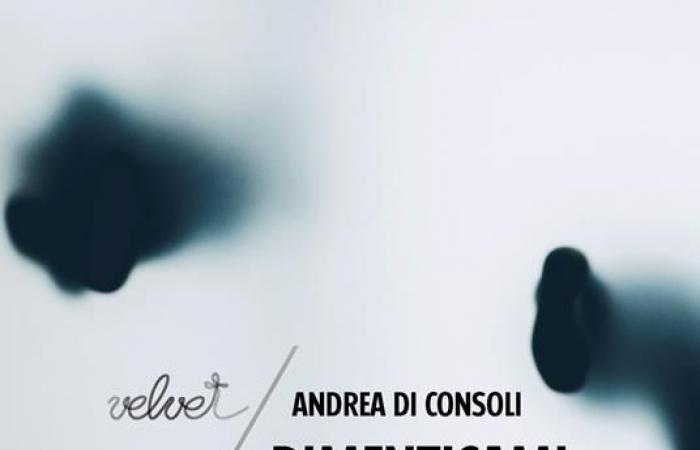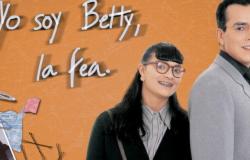“Dimenticami dopodomani” by Andrea Di Consoli (Rubbettino): meeting with the author and an excerpt from the book
* * *
Andrea DiConsoli was born in Zurich, to Lucanian parents, in 1976. Since 1996 he has lived in Rome where today he works as a literary critic, editorialist and radio and television author for Rai and numerous national newspapers. Among his books we remember Black lake, The Father of Animals, The curve of the night e The anger.
The new book by Andrea Di Consoli, Forget me the day after tomorrowRubbettino publishes it.
In this poetic collection of thoughts and reflections, Andrea Di Consoli talks about his Lucanian youth, about restless love and loneliness, about the many people and characters he met in his life, about his peasant parents and his grown-up children, about a maturity lived with passion but also with fear, tiredness, surrender. With Dimenticami dopodomani Di Consoli has written a book of direct, shameless, confessional pages, which speak of a middle generation without hiding failures and falls, disenchantments and bitterness.
Here, a video taken from the presentation at the Turin Book Fair: Andrea Di Consoli with Franco Arminio
–
Following, Andrea Di Consoli tells the story of the genesis of Forget me the day after tomorrow…
* * *
“I wrote this book between the end of 2022 and the first months of 2024,” he said. Andrea DiConsoli. “I thought I was done with poetry; or, at least, with my stories in the form of poetry – in fact I hadn’t written verses for more than ten years. Then, during the pandemic, Mario Desiati insistently contacted me. He had just returned from Germany. He had reread Navigation of the Po and he told me I had to get back to writing.
We met a few times at his house in Rome, and each time I told him with a broken voice that I was done with poetry. One evening I felt humiliated. He told me that he felt I had a lot to say, and that I was wasting my time. I left hurt – I remember it was night.
His words began to work inside me, like a worm. In the following months I wrote some poems, but they didn’t convince me. So I threw them away – evidently I had found a small vein, but not the large vein.
Then, suddenly, in October 2022, I wrote something that felt liberating. I had found my voice again – a writer notices it immediately, when he finds his voice again. Sometimes you lose it for years. And so I went on for a year and a half.
Therefore, I owe this book only to Mario – only he was able to see the water in a well that seemed dried up. How he did it, I don’t know. But I know that a writer encounters few hearts in his own generation: the fingers of one hand are more than enough to count them.”
* * *
The incipit of “Forget Me the Day After Tomorrow” by Andrea Di Consoli (Rubbettino, 2024)
One of the many things I have failed to express is
my happiness.
I am often told that I am a pessimistic, sad writer,
desperate.
Then something happens, especially with the people who care about me
they know for the first time.
It happens that they tell me: “You are different in person. You are alive,
vital, strong. Give warmth. Why aren’t you like that in yours too?
books?”.
I smile, and I always say the same thing: “You read it wrong.”
Yesterday I was having lunch with Flaminia, and she was almost ashamed of it.
tell me that he had torments, deep anguish.
Because we live in a time where the concept of happiness
it’s just plain dumb.
He had great strength, his pain.
His gaze was powerful.
It was at the top of things, while we ate in the street
Teulada – in a spring air.
Desperate people are desperate because they love life, and would like to
that it would never end.
What is eroticism, if not this desperation?
Yet, every time, I have to be told that I am one
sad writer.
I’ve never been able to fully say when
I cry, when I lose, when I miss something, when
I’m about to fall, when I feel pain, I’m happy.
Because I feel fierce emotions that make my life a
living body full of warm blood.
I’m even happy to die, even if I tremble with fear.
I’ve never been able to say it well, unfortunately.
Writers have many limitations.
They often die without having been able to say things anymore
important ones that they had in their throats.
At a certain point Flaminia laughed – a broken laugh,
liberating, a little incongruous, for her so composed.
What reliability does he have, who does not know pain?
What enjoyment it gives, who is not desperate for this life
what has to end?
What is the point of entering a body that knows no fear?
ra, and that doesn’t hug you even tighter for the nothingness that
what awaits us?
I have been a happy man, that’s the truth.
I enjoyed spring, a kiss, a tram, a
book, of a confession, of a glass of wine drunk
in a moment of abandonment.
Even when I broke, I was happy.
Even when I begged.
Even when I counted the lost things.
Yet people go into hiding when they are desperate.
And instead, it is in that desperation that true happiness lies.
And how beautiful people are when they want to bite,
cry, scratch you, scream a blind fury full of blood,
like a hemoptysis of the soul.
Or when they tell you: “I’m dying, I want to die.”
Because that’s exactly when they’re telling you:
«Love me, kill me, come inside me, tear me apart, take me
with you, take me away, life is just wonderful,
even if I cry, but instead I laugh.”
I’ve never been able to say this thing.
Many writers, unfortunately, miss the penalty kick more
important in their lives.
(All rights reserved)
© Andrea Di Consoli – © Rubbettino
* * *
Book card: “Forget me the day after tomorrow” by Andrea Di Consoli (Rubbettino)
From the Preface by Mario Desiati
Forget me the day after tomorrow It is an unclassifiable book. Perhaps it is a collection of poems; more likely, a book of short stories in poetic form. At the end of the reading, however, one has the feeling of having read a novel: the sentimental and visceral novel of a man from the South, now an adult, torn apart by nostalgia, guilt, desires, fears. In this book there are all the themes dear to the author: southern identity, loneliness, love and heartbreak, being a father, the obsession of memory, the worm of death. And a tone of reckoning always emerges, a hand-to-hand fight with the meaning of a life, an urgent and necessary, feverish song – of a writer with a hot forehead.
Con Forget me the day after tomorrow Andrea Di Consoli has given yet more proof of his vocation as an “irregular”, very distant from current fashions and editorial cunning. He has composed a realistic and poignant songbook, of great expressive power, representative of his generation. A book with an open heart, direct, without orphisms, reticence and unsaid. Hard and very sweet at the same time.
* * *
© Letteratitudine – www.letteratitudine.it
LetteratitudineBlog / LetteratitudineNews / LetteratitudineRadio / LetteratitudineVideo
Follow us on Facebook – X (ex Twitter) – Tumblr – Instagram – Threads






